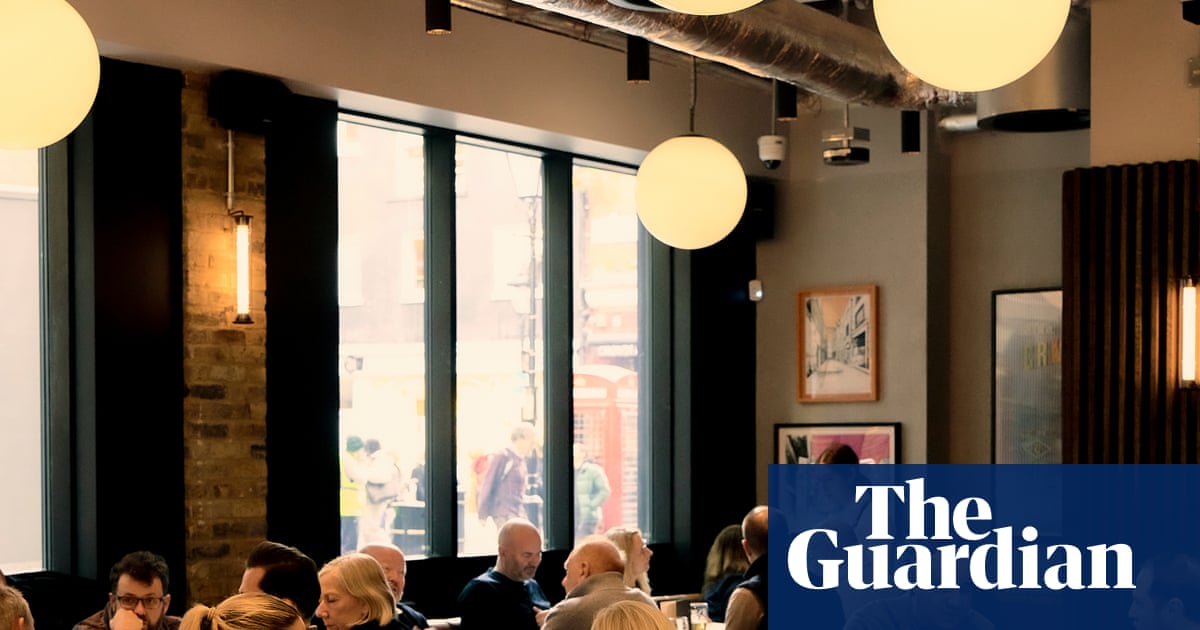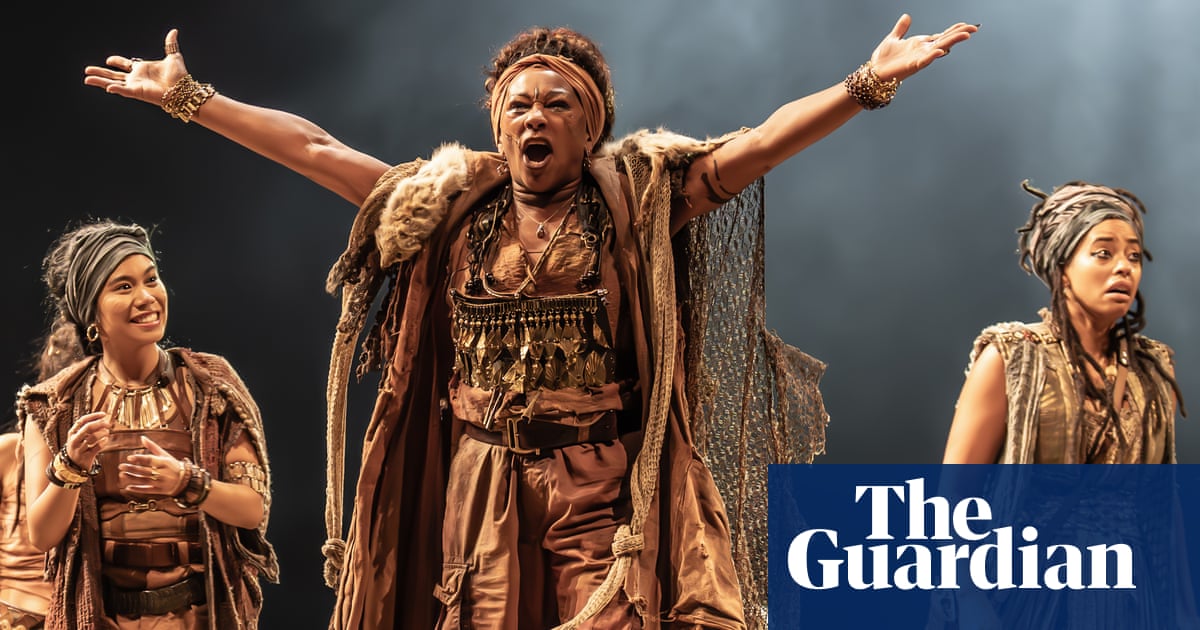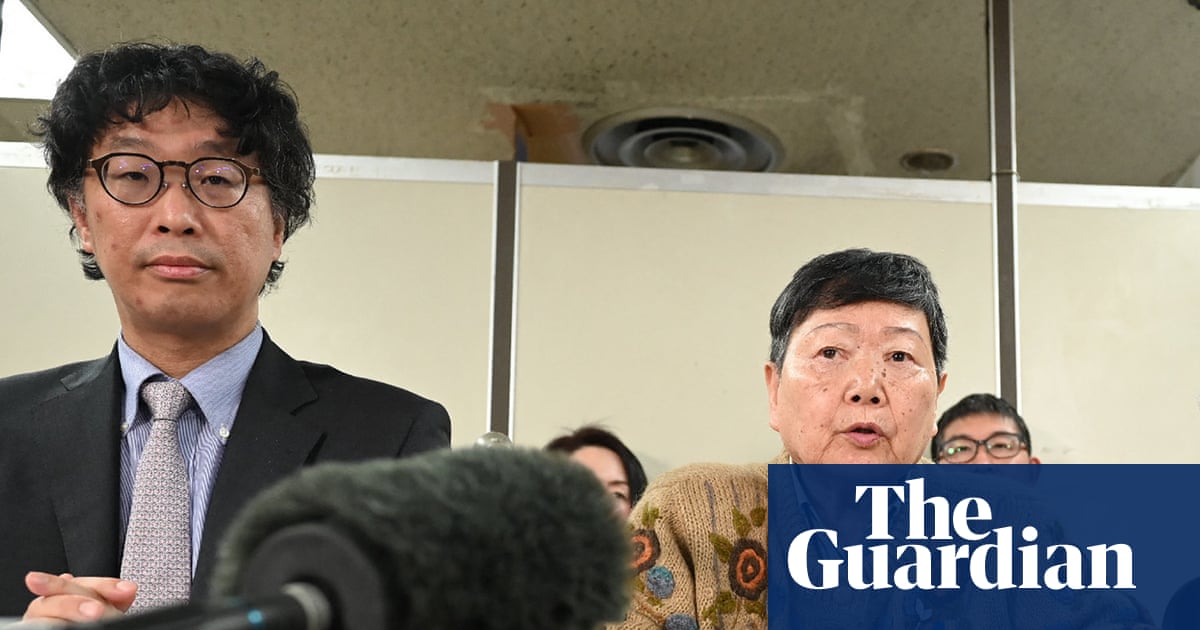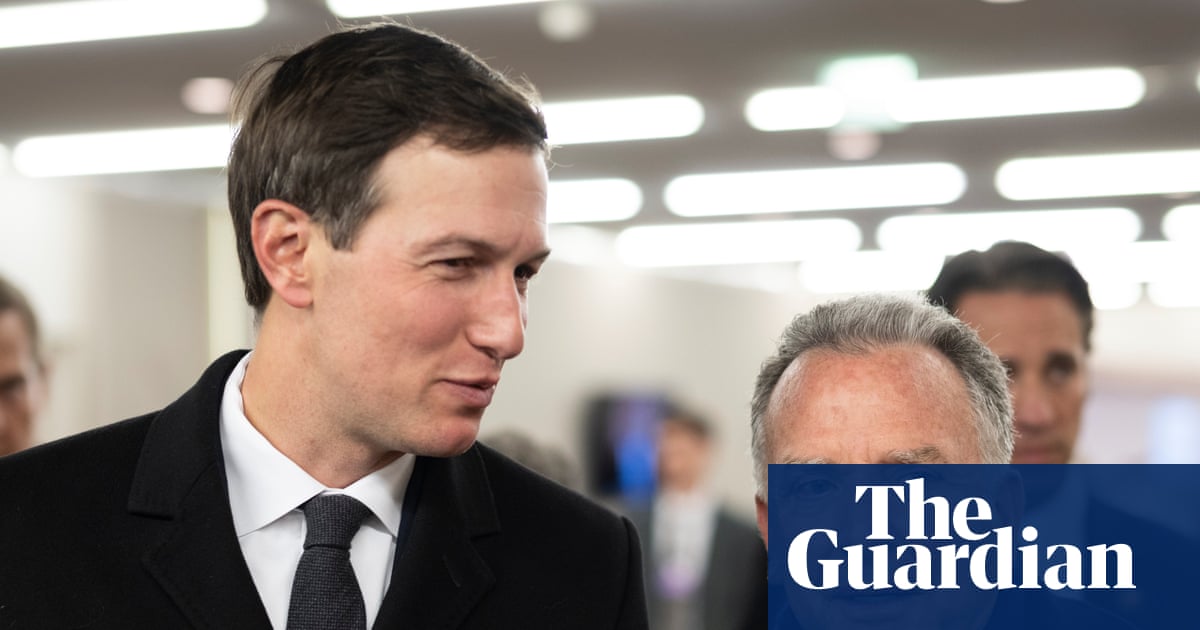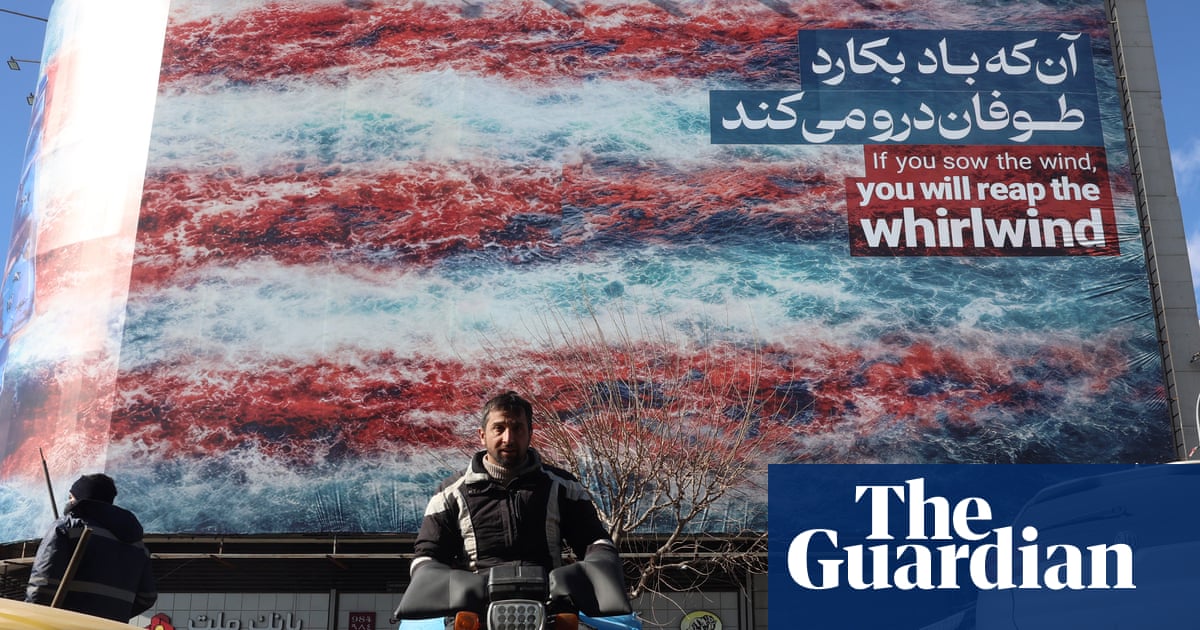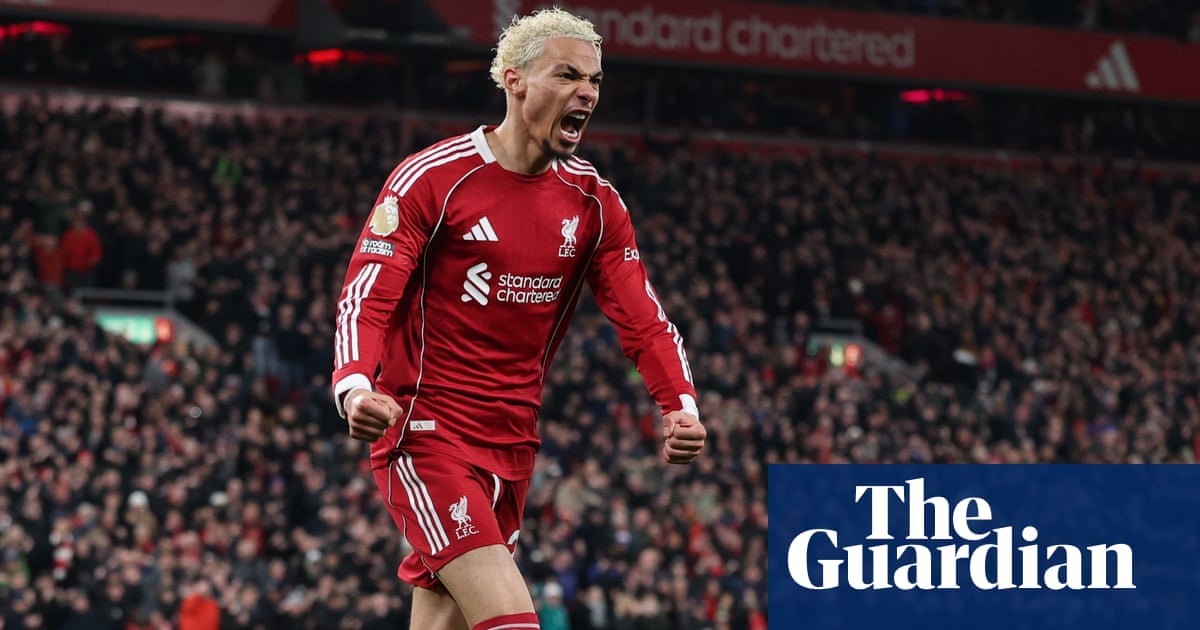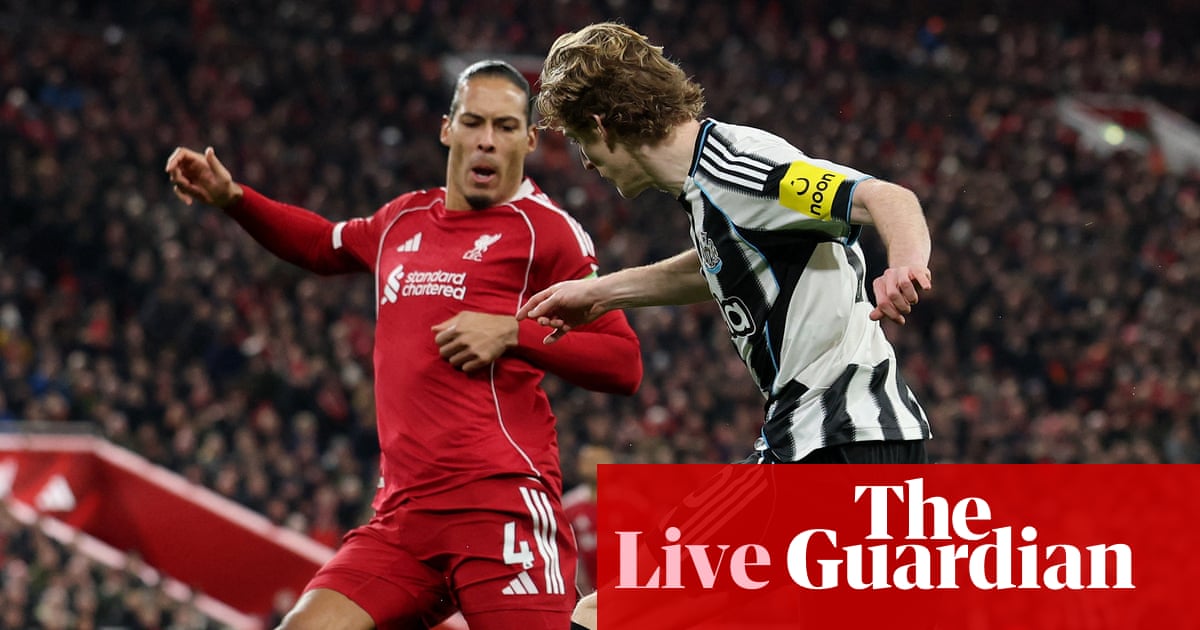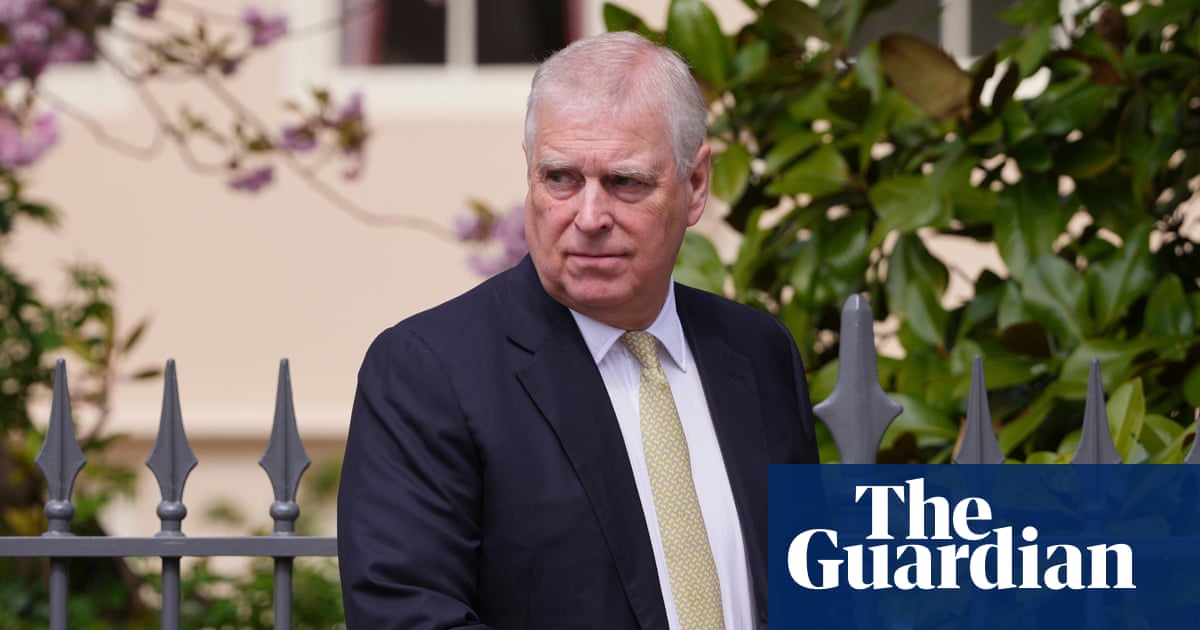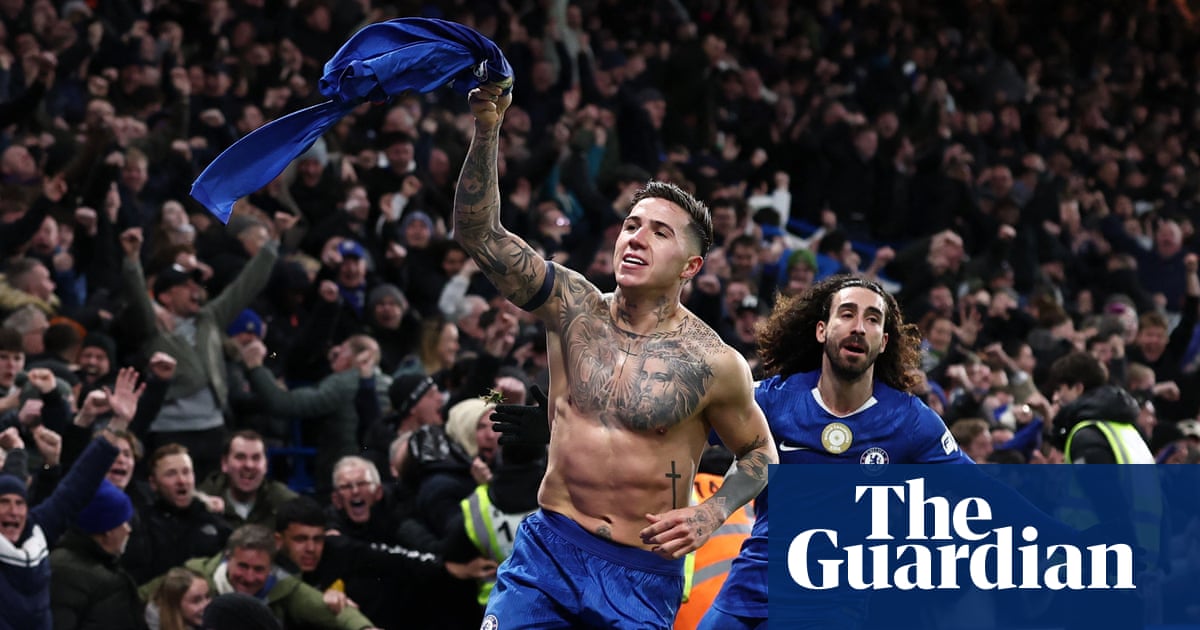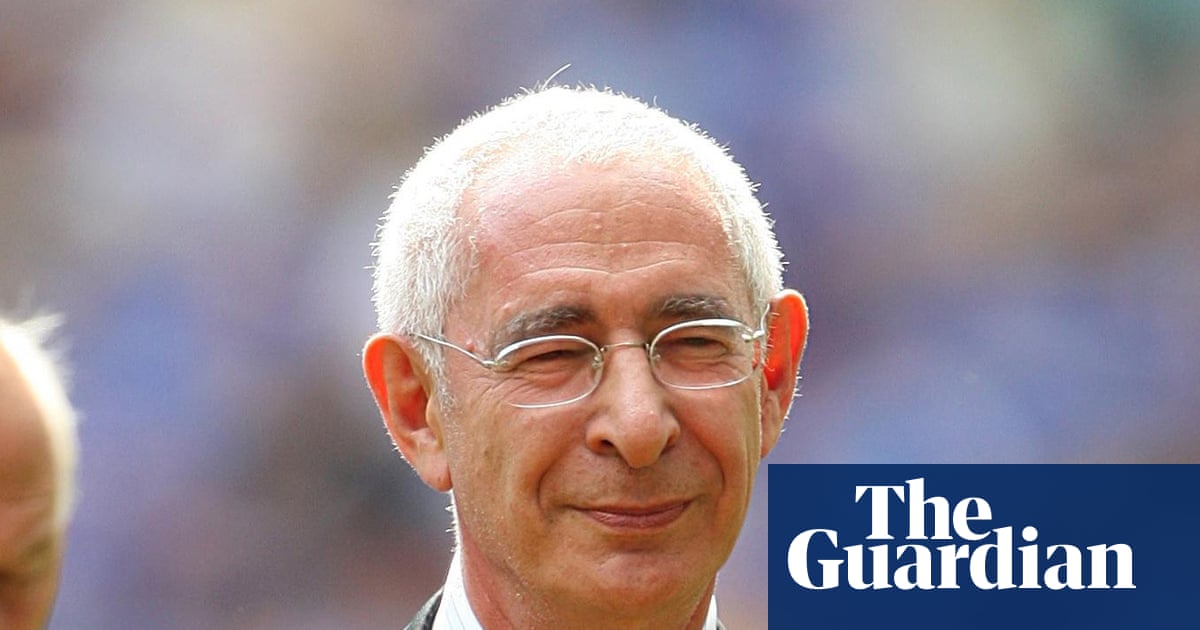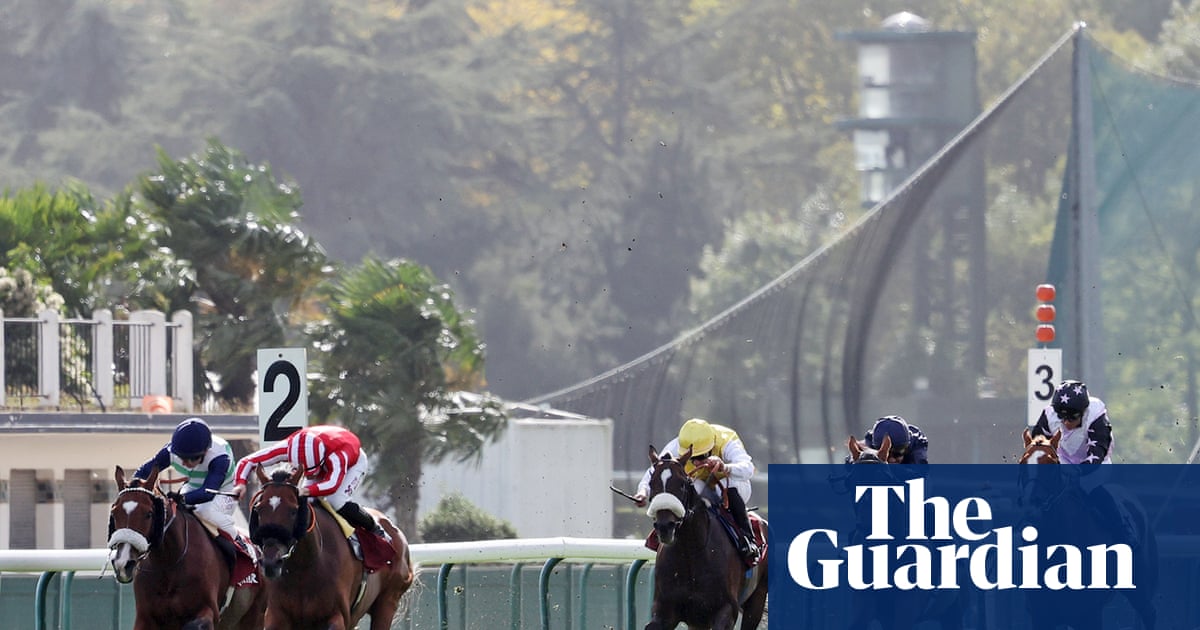What happens when public statues stop serving as historical markers of civic pride and become offensive to many in the present? Sometimes they are forcibly toppled, such as in the case of 17th-century slave trader, Edward Colston, whose bronze statue was rolled into Bristolian waters in 2020. But several years before that, there was protest over Yale University’s Calhoun College, named in honour of 19th-century alumnus, John C Calhoun, a white supremacist and zealous advocate of slavery (the college was renamed after Grace Murray Hopper in 2017).
The demand for its renaming is the subject of this debut play by writer-actor Jamie Bogyo, who is a Yale alumnus himself. A fictive statue of Calhoun sets the culture wars into full swing; a petition, organised by Omar (Ivan Oyik), is circulating the dorms. Connor (Bogyo) is its main opponent. He rails against virtue signalling and snowflakes, but insists he is not racist (“I voted for Obama”). He also tries to co-opt his Black room-mate, Isaiah (Ernest Kingsley Jr), for his cause. Meanwhile, Connor’s girlfriend, Annabelle (Céline Buckens), who comically manifests all the signs of white guilt, has ambitions to become president of Yale’s Women’s Leadership, but is pipped by freshman Stacy (Bola Akeju).
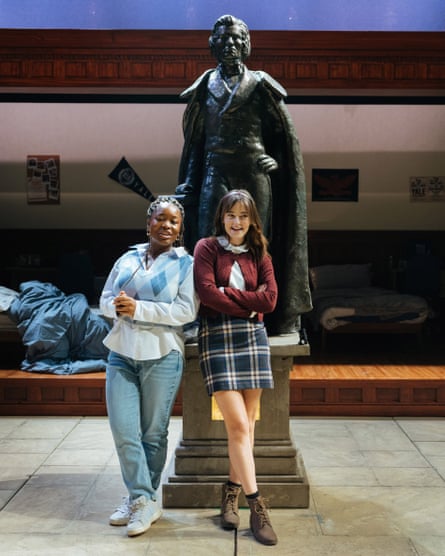
It is a lively setup which tries to wrestle with intersecting themes of race, gender and privilege, with dynamic direction from Roy Alexander Weise and lovely a cappella interludes. But the tone seems that of a broad campus comedy, complete with sophomoric sex, joshing and a silly masturbation scene. The Obama era language might be emphatic but feels dated.
Omar is made to seem goofy so that he resembles a sitcom character rather than an anti-racist firebrand with a blind-spot around gender. Stacy is overplayed as the ambitious Black student from the wrong side of the tracks and Connor is converted to the liberal cause after a single argument with Isaiah, while Isaiah’s own turn to a more politicised Black identity also feels too abrupt.
Connor as a whole seems too nice, too apologetic, to be the hard-right nemesis he is supposed to be, so there is not enough tension between characters. You get the impression that they would all be part of the No Kings campaign if they were students today.
There are a few strong scenes, such as an argument between Omar and Isaiah but not all of its grenades detonate. The a cappella remains a pleasure; Connor and Isaiah make good their rifts through music and both Bogyo and Kingsley Jr sing exquisitely, but the question of whether a Simon & Garfunkel song can save this friendship at the end does not carry quite the emotions it should.

 3 months ago
104
3 months ago
104





